
Al Ain: The Oasis City of the United Arab Emirates
Al Ain, known as the 'Garden City' of the United Arab Emirates, is a tranquil oasis in the midst of the desert. This city is rich in history and culture, offering a blend of traditional Emirati heritage and modern attractions. Located approximately 160 kilometers east of Abu Dhabi, Al Ain is a perfect destination for those looking to explore a different side of the UAE. One of the city's main attractions is the Al Ain Oasis, a UNESCO World Heritage site. This lush green area, fed by ancient falaj irrigation systems, provides a refreshing escape with its palm groves and shaded pathways. Visitors can take a leisurely walk or a guided tour to learn about the traditional farming methods that have sustained this oasis for centuries. For history enthusiasts, the Al Ain National Museum and the Al Jahili Fort offer deep insights into the region's past. The museum showcases artifacts dating back to the Bronze Age, while the fort, built in the late 19th century, stands as a testament to the city's strategic importance in protecting the surrounding area. Al Ain is also home to the Jebel Hafeet mountain, the highest peak in Abu Dhabi. A drive up the winding road to the summit offers stunning views of the city and the surrounding desert. At the base of the mountain, the Green Mubazzarah Park features hot springs and picnic spots, making it a popular spot for relaxation. For families, the Al Ain Zoo is a must-visit. It is one of the largest in the region and houses a wide variety of animals, including endangered species. The zoo's conservation programs and interactive exhibits make it an educational and enjoyable experience for visitors of all ages. With its blend of natural beauty, historical sites, and modern amenities, Al Ain offers a unique and enriching experience for tourists. Whether you're interested in exploring ancient history, enjoying outdoor activities, or simply relaxing in a serene setting, Al Ain has something for everyone.
Local tips in Al Ain
- Visit the Al Ain Oasis early in the morning to avoid the heat and enjoy a peaceful stroll.
- Pack comfortable walking shoes for exploring the city's historical sites and natural attractions.
- Don't miss the drive up Jebel Hafeet for breathtaking views, especially at sunset.
- Check the feeding times at Al Ain Zoo to see the animals at their most active.
- Use the local taxis or hire a car, as public transportation options are limited.
- Stay hydrated and carry sunscreen, as the desert climate can be harsh, especially in summer.
Neighbourhoods in Al Ain
Al Ain: The Oasis City of the United Arab Emirates
Al Ain, known as the 'Garden City' of the United Arab Emirates, is a tranquil oasis in the midst of the desert. This city is rich in history and culture, offering a blend of traditional Emirati heritage and modern attractions. Located approximately 160 kilometers east of Abu Dhabi, Al Ain is a perfect destination for those looking to explore a different side of the UAE. One of the city's main attractions is the Al Ain Oasis, a UNESCO World Heritage site. This lush green area, fed by ancient falaj irrigation systems, provides a refreshing escape with its palm groves and shaded pathways. Visitors can take a leisurely walk or a guided tour to learn about the traditional farming methods that have sustained this oasis for centuries. For history enthusiasts, the Al Ain National Museum and the Al Jahili Fort offer deep insights into the region's past. The museum showcases artifacts dating back to the Bronze Age, while the fort, built in the late 19th century, stands as a testament to the city's strategic importance in protecting the surrounding area. Al Ain is also home to the Jebel Hafeet mountain, the highest peak in Abu Dhabi. A drive up the winding road to the summit offers stunning views of the city and the surrounding desert. At the base of the mountain, the Green Mubazzarah Park features hot springs and picnic spots, making it a popular spot for relaxation. For families, the Al Ain Zoo is a must-visit. It is one of the largest in the region and houses a wide variety of animals, including endangered species. The zoo's conservation programs and interactive exhibits make it an educational and enjoyable experience for visitors of all ages. With its blend of natural beauty, historical sites, and modern amenities, Al Ain offers a unique and enriching experience for tourists. Whether you're interested in exploring ancient history, enjoying outdoor activities, or simply relaxing in a serene setting, Al Ain has something for everyone.
When is the best time to go to Al Ain?
Iconic landmarks you can’t miss
Al Ain Zoo
Explore Al Ain Zoo: A captivating wildlife sanctuary in Abu Dhabi, home to over 4,000 animals and dedicated to conservation and education.
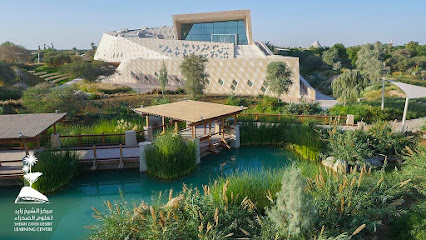
Al Jahli Park
Experience the serene beauty of Al Jahili Park, a peaceful oasis in Abu Dhabi perfect for relaxation and outdoor activities amidst lush landscapes.
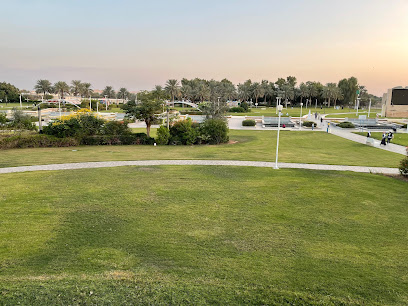
Al Ain Palace Museum
Immerse yourself in the rich history and stunning architecture of the Al Ain Palace Museum, a cultural gem in the heart of Abu Dhabi.

Al Wadi Park
Explore Al Wadi Park, Abu Dhabi's lush urban oasis for relaxation, recreation, and cultural experiences amidst breathtaking landscapes.
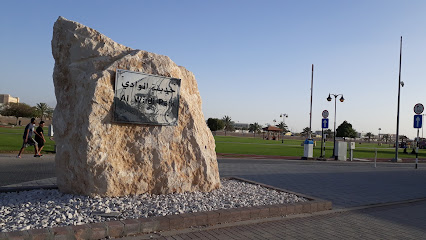
Hili Fun City
Experience the joy of Hili Fun City, an amusement park in Abu Dhabi filled with thrilling rides, family fun, and unforgettable memories.
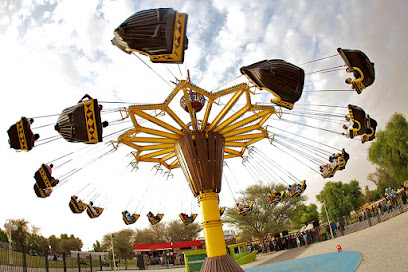
Jahili Park
Explore the lush landscapes and cultural heritage of Jahili Park in Abu Dhabi, a serene escape perfect for relaxation and recreation.
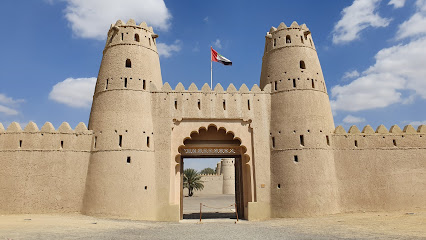
Al Ain Park
Experience the tranquility and natural beauty of Al Ain Park, an oasis of greenery in Abu Dhabi perfect for relaxation and family fun.
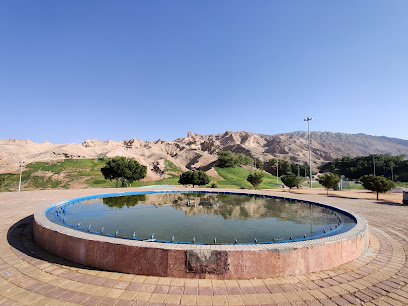
Al Jahili Fort
Explore Al Jahili Fort, a historical treasure in Abu Dhabi, showcasing the rich heritage and architectural splendor of the UAE.
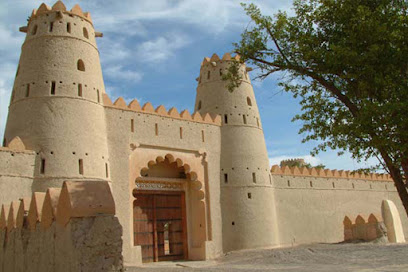
ADNEC Centre Al Ain
Discover innovation and connection at ADNEC Centre Al Ain, the premier venue for conferences, exhibitions, and trade shows in Abu Dhabi.
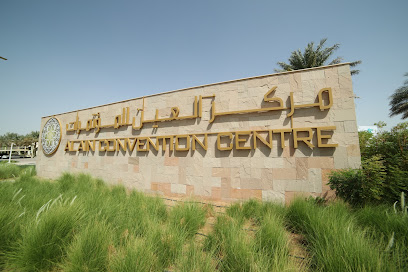
Al-Ain Clocktower
Discover the timeless beauty of the Al-Ain Clocktower, a historic landmark in Abu Dhabi's vibrant Central District, blending tradition with modernity.
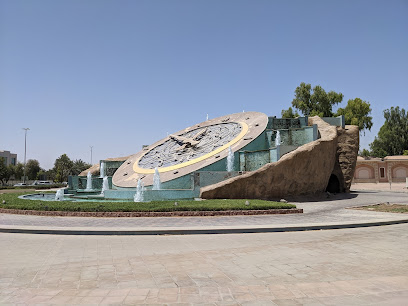
Qasr Al Muwaiji - قصر المويجعي
Discover the rich heritage of the UAE at Qasr Al Muwaiji, a UNESCO World Heritage site showcasing the architectural beauty and history of Abu Dhabi.
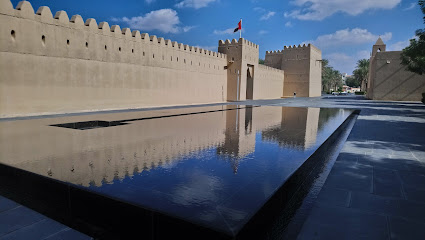
Sheikh Zayed Desert Learning Centre
Explore the Sheikh Zayed Desert Learning Centre, where the desert's beauty and history come alive through interactive experiences and engaging exhibits.
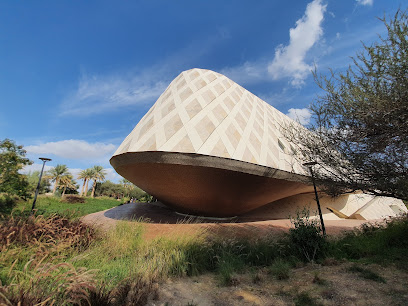
Al Mubazzarah Park
Explore the lush landscapes and therapeutic hot springs of Al Mubazzarah Park, a serene botanical garden in the heart of Abu Dhabi.
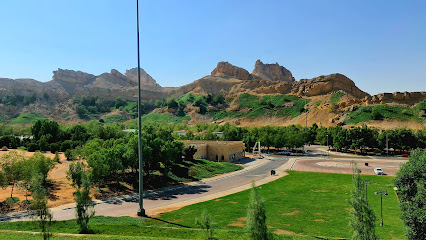
Al Ain Adventure
Experience the thrill of adventure sports amidst the stunning landscapes of Ain Al Fayda at Al Ain Adventure.
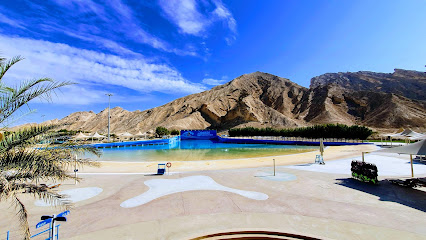
Hili Archaeological park
Discover the ancient wonders of Hili Archaeological Park, a serene oasis of history and culture in Abu Dhabi, perfect for tourists and history enthusiasts alike.
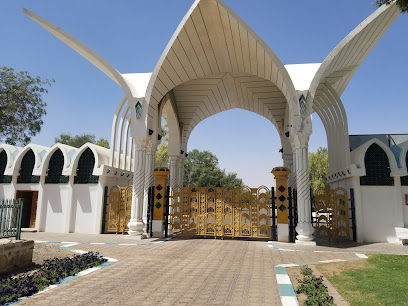
Unmissable attractions to see
Al Ain Zoo
Explore Al Ain Zoo, a top tourist attraction in Abu Dhabi, offering a unique wildlife experience and commitment to conservation in a stunning natural setting.
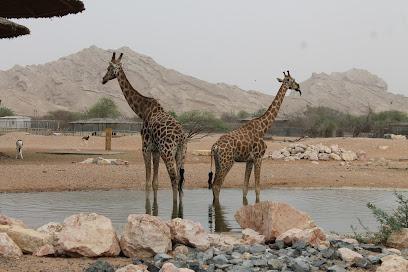
Al Ain Palace Museum
Explore the Al Ain Palace Museum, a cultural gem in Abu Dhabi showcasing the heritage of the UAE through stunning exhibits and royal history.

Al Wadi Park
Explore the serene beauty of Al Wadi Park, a lush urban oasis in Abu Dhabi perfect for relaxation and outdoor activities.
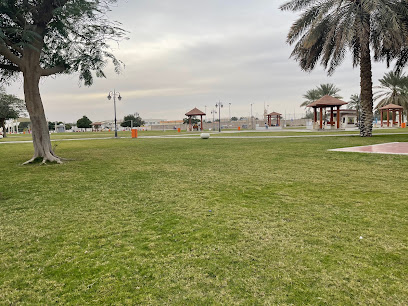
Towayya Park
Explore Towayya Park in Abu Dhabi: a vibrant green space with sports facilities, walking paths, and a peaceful setting for relaxation and recreation.
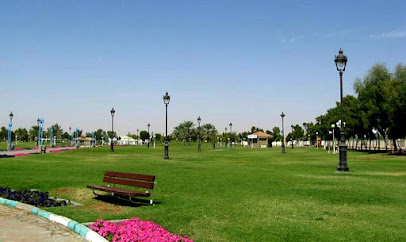
Qasr Al Muwaiji - قصر المويجعي
Explore the historical grandeur of Qasr Al Muwaiji, a captivating fortress and museum revealing UAE's rich cultural heritage.
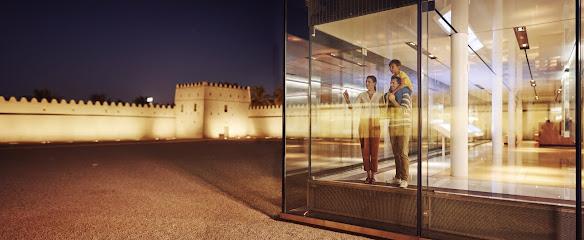
Sheikh Zayed Desert Learning Centre
Explore the Sheikh Zayed Desert Learning Centre, where nature and culture come together in the heart of the UAE's breathtaking desert landscape.
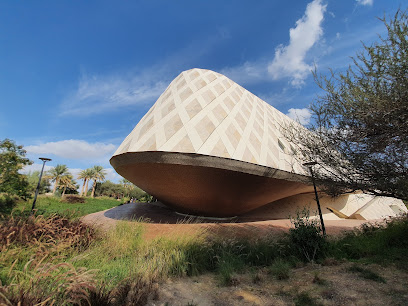
Al Ain Ladies Park (Al Basra Park)
Discover tranquility at Al Ain Ladies Park, a dedicated oasis for families, featuring lush gardens and engaging recreational activities in Abu Dhabi.
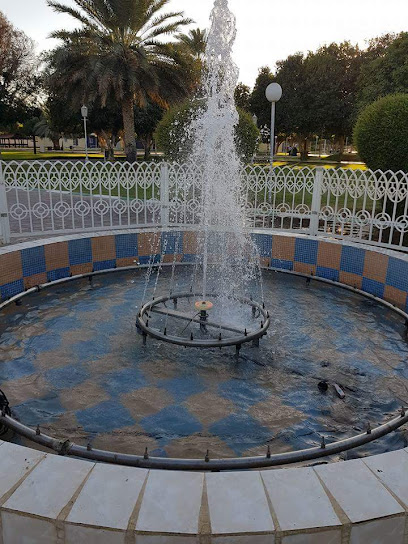
Al Ain National Museum
Explore the rich cultural heritage of the UAE at Al Ain National Museum in Abu Dhabi's Central District, where history comes alive through captivating exhibits.
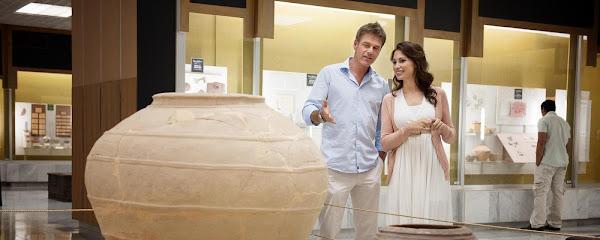
Al Qattara arts center
Explore the vibrant world of art and culture at Al Qattara Arts Center in Abu Dhabi, where creativity meets Emirati heritage.
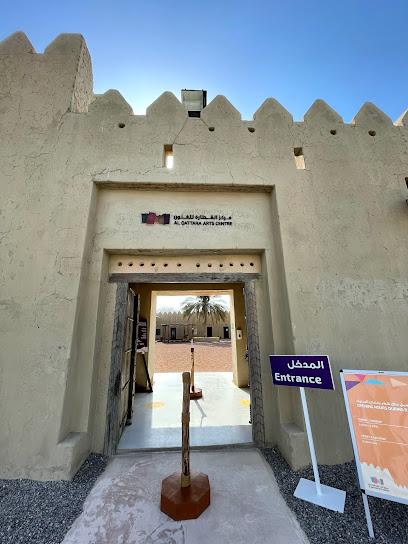
Al Ain Raceway
Experience the adrenaline rush at Al Ain Raceway, Abu Dhabi's premier go-karting and motorsport destination for families and thrill-seekers.
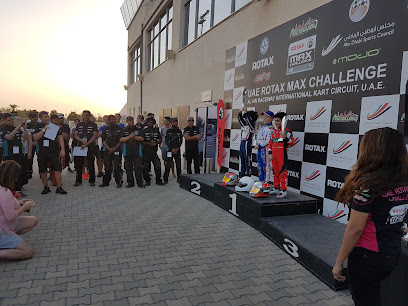
AlRumaila Fort
Explore Abu Dhabi's AlRumaila Fort, a historic fortress showcasing the rich cultural heritage and architectural brilliance of the UAE.
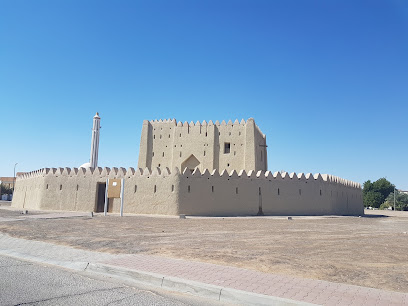
Al Ain Camel Market
Discover the vibrant culture of camel trading at Al Ain Camel Market, a must-visit destination in Abu Dhabi for a unique Arabian experience.
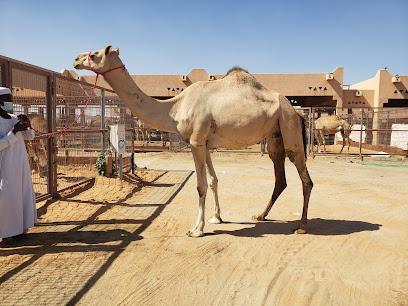
Mini Train- hot spring
Experience the perfect blend of relaxation and adventure at the Mini Train Hot Spring, Abu Dhabi's hidden gem for tourists seeking rejuvenation.
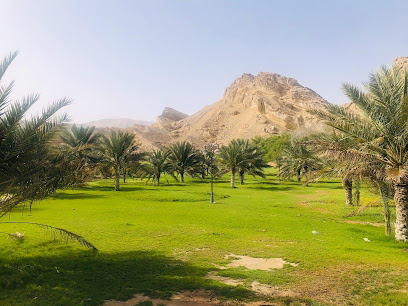
Al Ain Oasis
Experience the breathtaking natural beauty and cultural heritage of Al Ain Oasis, a serene escape in the heart of Abu Dhabi's Central District.
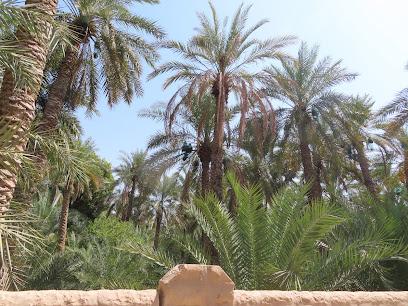
Al Ain Paradise Garden
Experience the breathtaking beauty of Al Ain Paradise Garden, a vibrant floral paradise in the heart of Abu Dhabi, perfect for a tranquil escape.
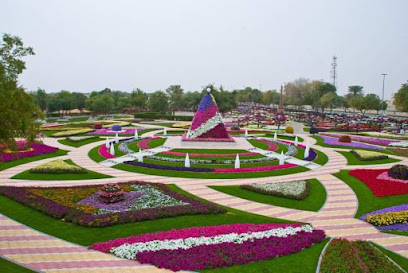
Essential places to dine
Al Fanar Restaurant & Cafe
Experience authentic Middle Eastern cuisine at Al Fanar Restaurant & Cafe in Al Ain – where tradition meets flavor.
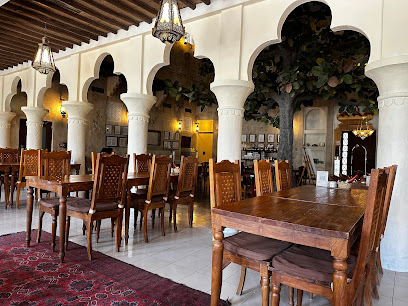
Golden Sheep Restaurant & Grills
Discover authentic Lebanese flavors at Golden Sheep Restaurant & Grills in Abu Dhabi's Central District.
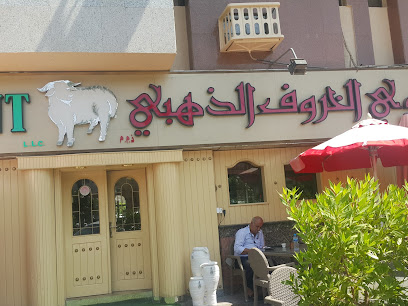
Wood House Restaurant Al Ain
Experience diverse global flavors at Wood House Restaurant in Al Ain Mall - where every meal is a celebration of taste.
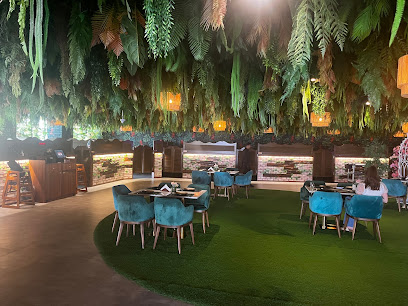
Ardh Almandi Restaurant
Discover authentic Yemenite flavors at Ardh Almandi Restaurant in Abu Dhabi – a culinary gem offering delicious traditional dishes.
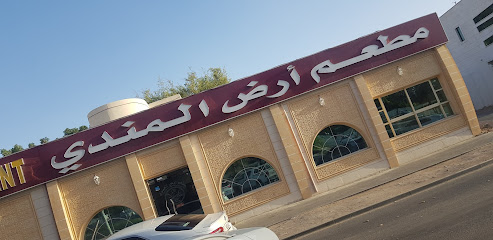
Al-Bayt Al-Shami Restaurant and Cafeteria, Main Branch
Experience authentic Syrian cuisine at Al-Bayt Al-Shami Restaurant in Abu Dhabi - a culinary journey filled with flavor and tradition.
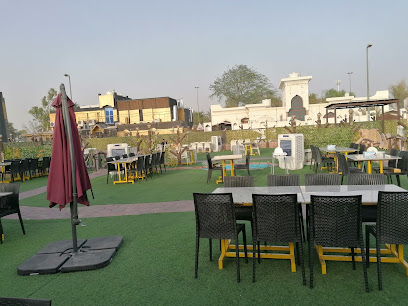
Leisure Center - Al Ain مطعم وكافيه ليجر - العين
Experience diverse flavors at Leisure Center - Al Ain, your family-friendly destination for buffets, coffee delights, and authentic Lebanese cuisine.
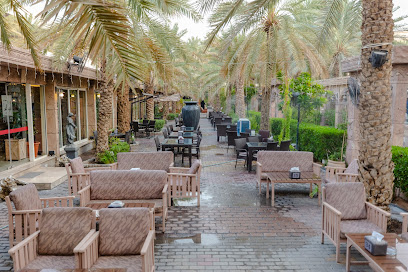
ALMALLAH Restaurant & Cafeteria
Discover the authentic taste of Lebanon at ALMALLAH Restaurant & Cafeteria in Abu Dhabi – where every dish tells a story.
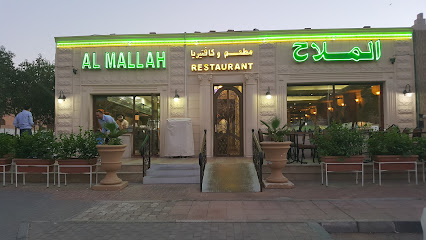
KAAKI W NOS RESTAURANT
Discover authentic Lebanese cuisine at KAAKI W NOS RESTAURANT in Abu Dhabi - where every dish tells a story.
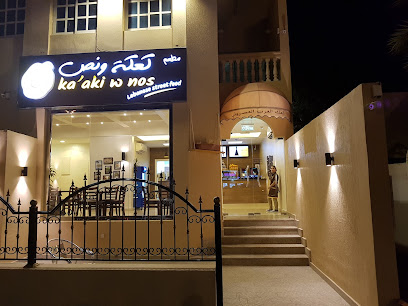
Bhavana Veg Corner Restaurant
Discover delicious vegetarian delights at Bhavana Veg Corner Restaurant in Abu Dhabi - where flavor meets health in every dish!
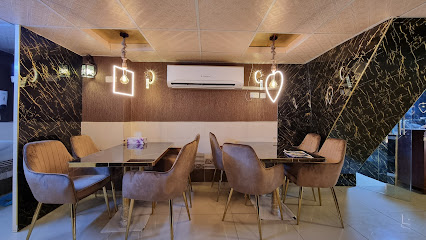
Solidaire Restaurant & Cafe - Al Jimi Mall
Discover authentic Lebanese cuisine at Solidaire Restaurant & Cafe in Al Jimi Mall - where every dish tells a story.
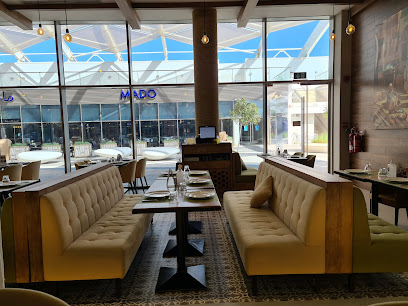
Simply Indian
Experience authentic Indian cuisine at Simply Indian in Abu Dhabi's Central District – where every dish tells a flavorful story.
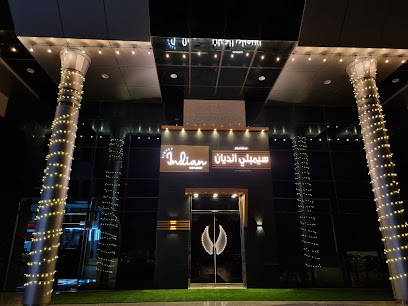
Top 5 Restaurant
Discover exquisite flavors at Top 5 Restaurant in Al Ain – where tradition meets modern cuisine for an unforgettable dining experience.
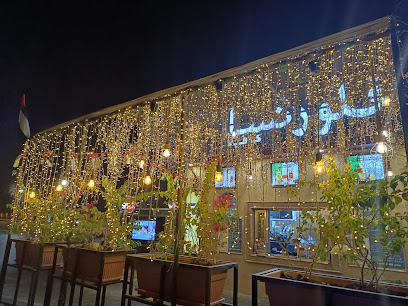
BAIT AL NAJOOM RESTAURANT
Discover the authentic flavors of Middle Eastern cuisine at Bait Al Najoom Restaurant in Al Ain - where every meal is a culinary journey.
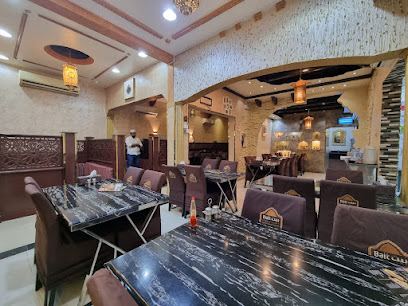
Solidaire Restaurant & Cafe - Hili Mall
Experience authentic Lebanese flavors at Solidaire Restaurant & Cafe in Hili Mall, Abu Dhabi - where every meal is a celebration.
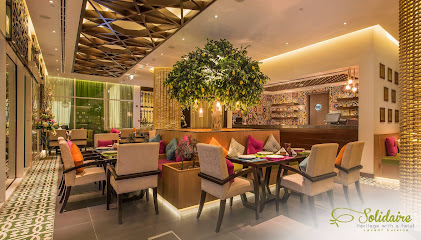
Unique Al Ain Restaurant L.L.C
Discover authentic Indian cuisine at Unique Al Ain Restaurant in Abu Dhabi's Central District – where every meal is a flavorful adventure.
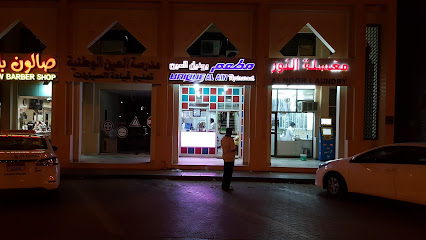
Markets, malls and hidden boutiques
Al Ain Mall
Explore Al Ain Mall in Abu Dhabi, a premier shopping destination with diverse brands, delicious dining options, and family-friendly entertainment.
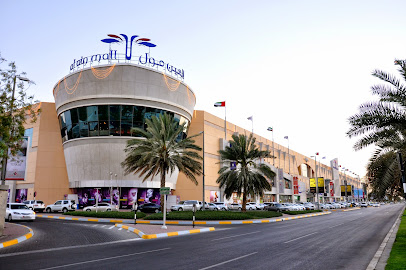
Al Jimi Mall
Explore Al Jimi Mall in Abu Dhabi, a shopping paradise featuring diverse retail options, exciting entertainment, and delicious dining experiences.
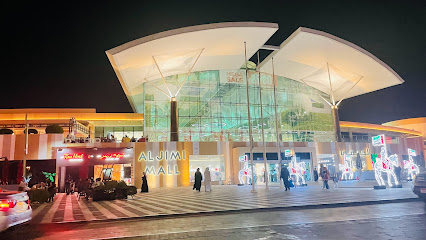
Malabar Gold and Diamonds - Al Ain - Meena bazar (Branch 2)
Discover exquisite jewelry at Malabar Gold and Diamonds in Al Ain's Meena Bazar – where luxury meets culture in the heart of the UAE.
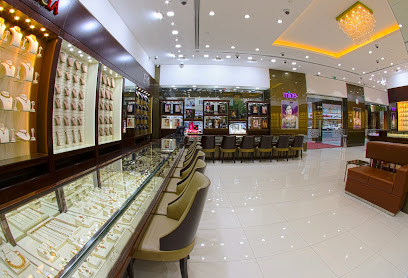
Hili Mall
Explore Hili Mall in Abu Dhabi: your go-to destination for shopping, dining, and entertainment with a touch of local culture.
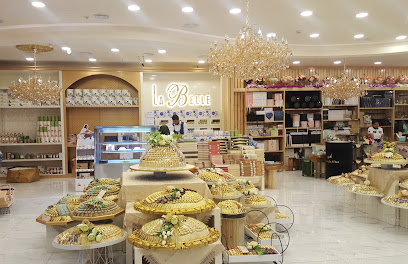
Al Ain Gift Market
Explore the cultural richness of Abu Dhabi at Al Ain Gift Market, where unique Emirati treasures await every traveler.
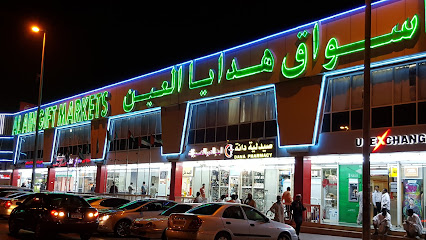
Al Foah Mall
Discover the vibrant shopping and dining experiences at Al Foah Mall, Abu Dhabi's premier retail destination with something for everyone.
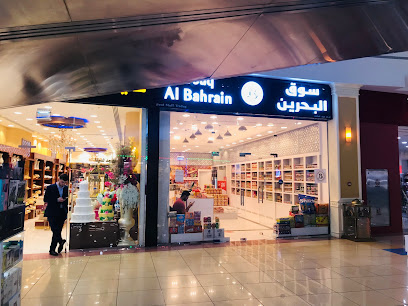
Malabar Gold and Diamonds - LuLu Hypermarket - Kuwaitat Al Ain
Explore luxurious jewelry at Malabar Gold and Diamonds in Al Ain, where exquisite craftsmanship meets exceptional service.
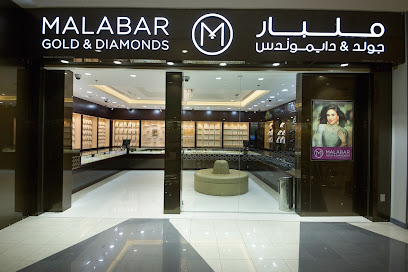
AL MOJAH JEWELLERY L.L.C Alain
Explore Al Mojah Jewellery L.L.C in Abu Dhabi for exquisite craftsmanship and stunning jewelry pieces that capture the essence of luxury.
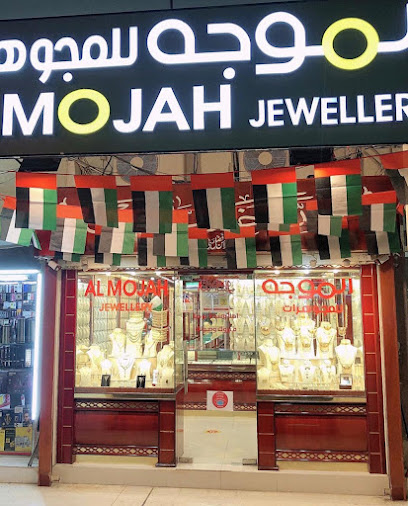
Baqala-Lulu Supermarket
Discover the essence of Abu Dhabi's flavors at Baqala-Lulu Supermarket, a vibrant grocery store offering local and international delights.
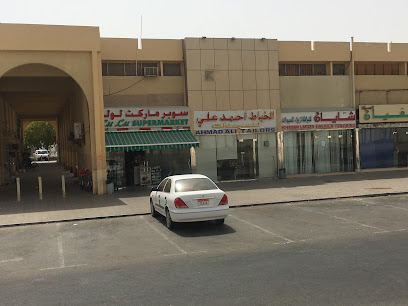
Al Ain Gift Market Branch
Explore Al Ain Gift Market in Abu Dhabi for an exciting shopping experience filled with unique souvenirs and local handicrafts at unbeatable prices.
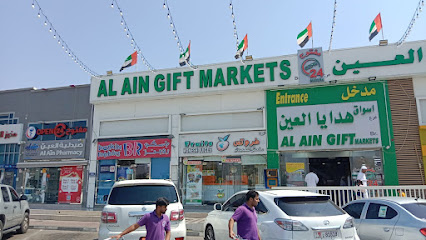
Centrepoint
Discover a shopping paradise at Centrepoint in Abu Dhabi, where fashion meets lifestyle in a vibrant department store experience.
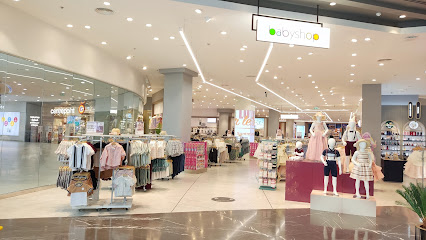
Regal Fabrics Al Ain
Explore an exquisite selection of fabrics and clothing at Regal Fabrics Al Ain, a premier textile destination in Abu Dhabi.
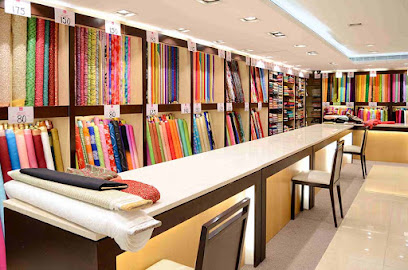
Splash
Explore the fashion-forward offerings at Splash in Al Jimi, Abu Dhabi, where style meets affordability for every fashionista.
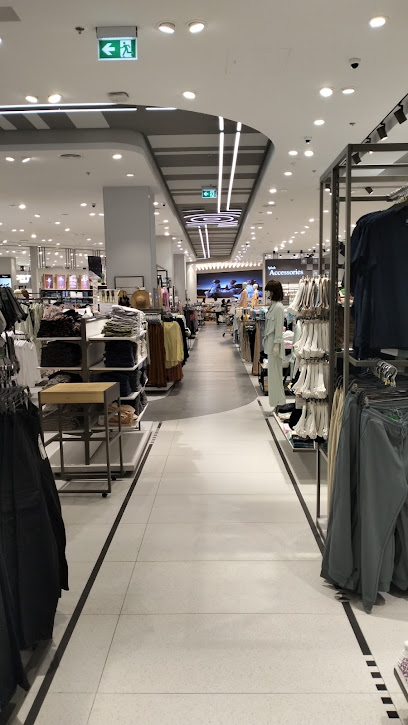
Bliss Flower Boutique
Discover the beauty of Abu Dhabi at Bliss Flower Boutique, your destination for exquisite florals and unique gifts that embody the elegance of the UAE.
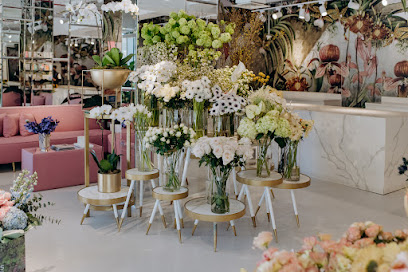
Meena Gift Town LLC
Discover unique souvenirs and local crafts at Meena Gift Town LLC, your go-to gift shop in the heart of Abu Dhabi, capturing the essence of Emirati culture.
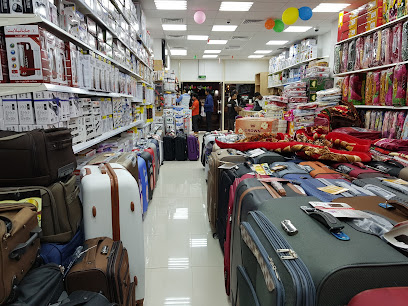
Essential bars & hidden hideouts
McGettigan's Al Ain
Immerse yourself in the vibrant Irish culture at McGettigan's Al Ain, a must-visit pub for great food, drinks, and live entertainment in Abu Dhabi.
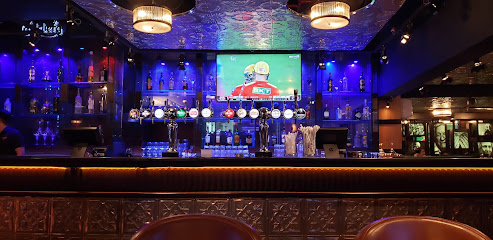
Trader Vic's
Discover the vibrant atmosphere and exotic flavors of Trader Vic's, a Polynesian dining experience in the heart of Abu Dhabi.
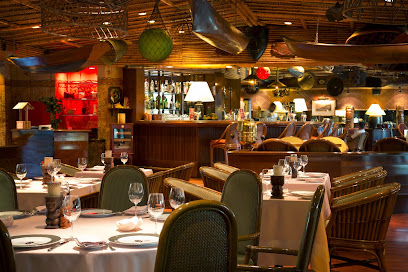
The Rooftop _ Aloft Al Ain
Experience breathtaking views and vibrant vibes at The Rooftop Lounge, the perfect sky-high destination in Abu Dhabi.
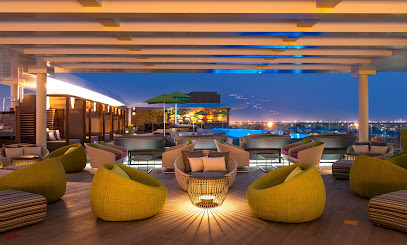
Moodz
Experience the vibrant nightlife at Moodz, Abu Dhabi's top night club and sports bar, where every night is an unforgettable celebration.
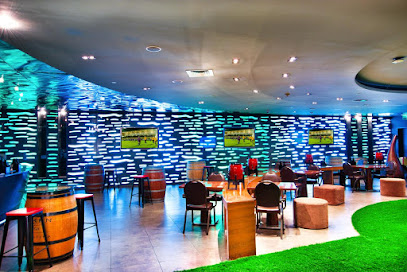
Peach Garden
Discover the lively Peach Garden bar at Radisson Blu Hotel & Resort Al Ain, a perfect spot for relaxation and socializing with refreshing drinks.

Al Ain Hilton Liqour Store
Experience the vibrant atmosphere of Al Ain Hilton Liquor Store in Abu Dhabi, offering a diverse selection of beverages in a welcoming environment.
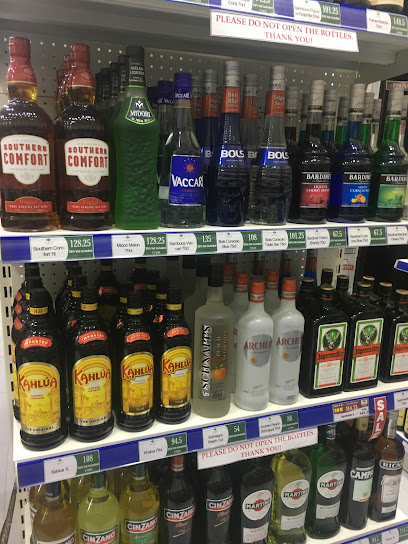
Cioconat Lounge
Discover the elegance of Cioconat Lounge in Al Ain, where exquisite drinks and a luxurious atmosphere await you.
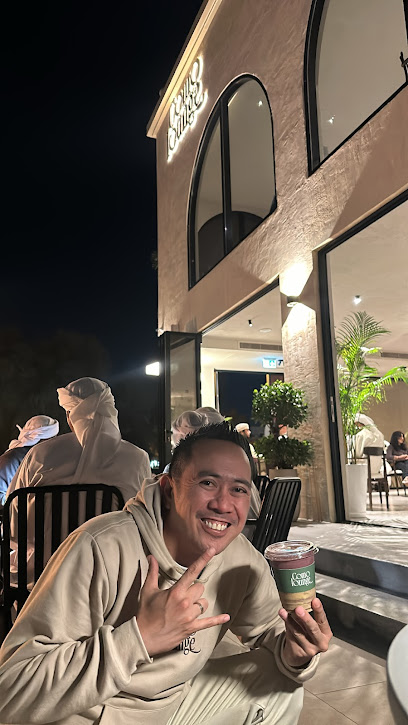
Aquarius Pool Bar
Experience the tranquility and vibrant atmosphere of Aquarius Pool Bar, a serene retreat in Al Jahili, Abu Dhabi, perfect for relaxation and refreshment.
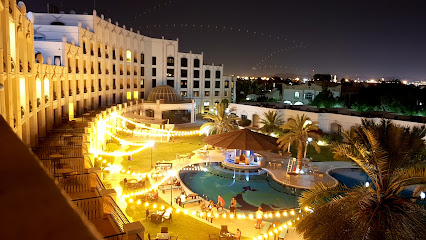
Lawrence's Bar
Discover the vibrant atmosphere of Lawrence's Bar in Jabal Hafeet, a perfect retreat for tourists seeking relaxation and local flavors amidst stunning scenery.
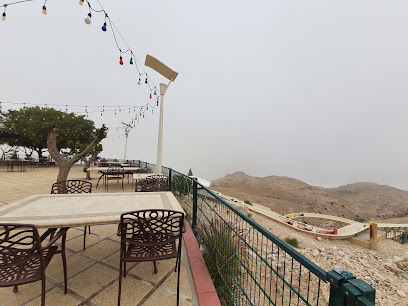
W XYZ Lounge _ Aloft Al Ain
Experience the vibrant nightlife at W XYZ Lounge in Aloft Al Ain, where innovative cocktails and a lively atmosphere await.
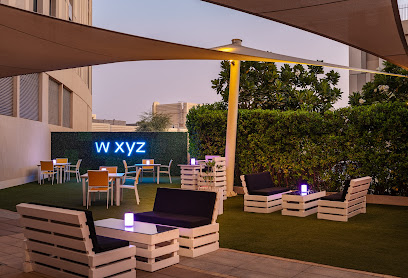
Bar Bar Pastry
Discover the delightful world of pastries at Bar Bar Pastry, a must-visit destination in Abu Dhabi's Central District for every dessert lover.

Md manik
Experience the vibrant nightlife at Md Manik Bar, a popular spot in Hili, Abu Dhabi, known for its lively atmosphere and diverse drink selections.
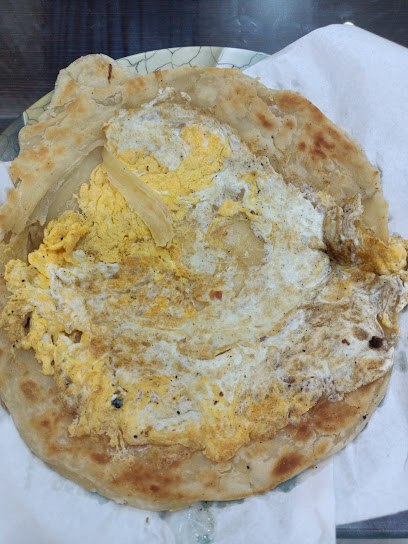
Rugby Bar
Experience the electric atmosphere of Rugby Bar in Abu Dhabi, where sports and nightlife blend seamlessly for an unforgettable evening.

Sharbat
Experience the vibrant atmosphere and unique flavors at Sharbat, a must-visit bar in Zakhir, Abu Dhabi for a memorable night out.

Local Phrases
-
- Helloمرحبا
[marhaban] - Goodbyeوداعا
[wadaeana] - Yesنعم
[naam] - Noلا
[laa] - Please/You're welcomeمن فضلك
[min fadlik] - Thank youشكرا لك
[shukran lak] - Excuse me/Sorryعذرا
[aadhran] - How are you?كيف حالك؟
[kayf halak?] - Fine. And you?بخير. وأنت؟
[bikhayr. wa ant?] - Do you speak English?هل تتحدث الإنجليزية؟
[hal tatahadath al'inglizia?] - I don't understandأنا لا أفهم
[ana la afham]
- Helloمرحبا
-
- I'd like to see the menu, pleaseأريد أن أرى القائمة، من فضلك
[urid an ara alqaimah, min fadlik] - I don't eat meatأنا لا آكل اللحم
[ana la akl allahm] - Cheers!صحتين!
[sahatayn!] - I would like to pay, pleaseأريد أن أدفع، من فضلك
[urid an adfaa, min fadlik]
- I'd like to see the menu, pleaseأريد أن أرى القائمة، من فضلك
-
- Help!النجدة!
[alnajdah!] - Go away!ارحل!
[irhal!] - Call the Police!اتصل بالشرطة!
[atassil bialsurata!] - Call a doctor!اتصل بالطبيب!
[atassil bialtabib!] - I'm lostلقد ضللت
[laqad dalalt] - I'm illأنا مريض
[ana mareed]
- Help!النجدة!
-
- I'd like to buy...أريد أن أشتري...
[urid an ashtari...] - I'm just lookingأنا فقط أتفرج
[ana faqat atfarij] - How much is it?كم سعره؟
[kam siroh?] - That's too expensiveهذا غالي جدا
[hatha ghali jiddan] - Can you lower the price?هل يمكنك خفض السعر؟
[hal yumkinuka khafl alsir?]
- I'd like to buy...أريد أن أشتري...
-
- What time is it?كم الساعة؟
[kam alsaaah?] - It's one o'clockالساعة الواحدة
[alsaaah alwahidah] - Half past (10)الساعة العاشرة والنصف
[alsaaah alashirah walinisf] - Morningصباح
[sabah] - Afternoonبعد الظهر
[baed alduhr] - Eveningمساء
[masaa] - Yesterdayأمس
[ams] - Todayاليوم
[alyawm] - Tomorrowغدا
[ghadan] - 1واحد
[wahid] - 2اثنان
[ithnan] - 3ثلاثة
[thalatha] - 4أربعة
[arbaah] - 5خمسة
[khamsah] - 6ستة
[sittah] - 7سبعة
[sabah] - 8ثمانية
[thamania] - 9تسعة
[tisah] - 10عشرة
[asharah]
- What time is it?كم الساعة؟
-
- Where's a/the...?أين ال...؟
[ayn al...?] - What's the address?ما هو العنوان؟
[ma huwa alaeunwan?] - Can you show me (on the map)?هل يمكنك أن تريني (على الخريطة)؟
[hal yumkinuka an tarini (ala alkhariata)?] - When's the next (bus)?متى يأتي الحافلة القادمة؟
[mata yaati alhafilat alqadima?] - A ticket (to ....)تذكرة (إلى ...)
[tazkirat (ila ...)]
- Where's a/the...?أين ال...؟
History of Al Ain
-
Al Ain, often referred to as the 'Garden City' due to its lush greenery, boasts a rich history that dates back over 4,000 years. Archaeological excavations have revealed evidence of ancient settlements in the area, including the famous Hili Archaeological Park. This site contains tombs, residential and agricultural structures, and artifacts from the Bronze Age, showcasing the early human presence and their advanced understanding of agriculture and irrigation.
-
Central to Al Ain's heritage is its vast oasis, which has sustained human habitation for millennia. The Al Ain Oasis is a UNESCO World Heritage site and is renowned for its traditional falaj irrigation system. This ancient technique, which channels water from underground sources to the surface, has supported date palm cultivation and other agriculture, providing a lifeline for the region's inhabitants through the ages.
-
Al Ain is home to several historic forts that played crucial roles in the protection and administration of the area. Al Jahili Fort, built in the late 19th century, is one of the most significant. It was constructed to defend the city and protect precious palm groves. Another notable fort is Qasr Al Muwaiji, which served as a residence for the ruling Al Nahyan family and witnessed the birth of Sheikh Khalifa bin Zayed Al Nahyan, the current President of the UAE.
-
Al Ain is a treasure trove of Emirati culture and traditions. The city hosts numerous cultural festivals and events, such as the Al Ain Music Festival and the Al Ain Classical Music Festival, celebrating the arts and heritage of the UAE. Traditional practices, including camel racing and falconry, are still very much alive in Al Ain, offering visitors a glimpse into the rich cultural tapestry of the region.
-
As the birthplace of Sheikh Zayed bin Sultan Al Nahyan, the founding father of the United Arab Emirates, Al Ain holds a special place in the nation's history. Sheikh Zayed's vision and leadership were instrumental in the establishment and development of the UAE. Today, Al Ain continues to thrive as a center of education, with institutions like the United Arab Emirates University, and as a hub for tourism, drawing visitors to its historical sites, museums, and natural beauty.
-
In 2011, UNESCO recognized several cultural sites in Al Ain as World Heritage Sites, highlighting their global significance. These sites include the Hili Archaeological Park, the Al Ain Oasis, the Bidaa Bint Saud Archaeological Site, and the Hafit Tombs. This recognition underscores the importance of Al Ain's heritage and its contributions to humanity's understanding of early civilizations in the Arabian Peninsula.
Al Ain Essentials
-
Al Ain is located in the eastern region of the United Arab Emirates, near the border with Oman. The nearest international airport is Al Ain International Airport (AAN), which is about 18 kilometers from the city center. However, most international travelers arrive via Abu Dhabi International Airport (AUH) or Dubai International Airport (DXB), both of which are approximately 1.5 to 2 hours away by car. From these airports, you can rent a car, take a taxi, or use shuttle services to reach Al Ain.
-
Al Ain is well-connected through a network of roads and public transport. Taxis are readily available and are a convenient way to get around the city. Alternatively, you can use the Al Ain public bus system, which is reliable and affordable. Car rentals are also a popular option for those who prefer to explore at their own pace. Bicycles can be rented for short distances, especially around parks and tourist areas.
-
The official currency of the United Arab Emirates is the UAE Dirham (AED). Credit and debit cards are widely accepted in hotels, restaurants, and most shops. However, it is advisable to carry some cash for smaller establishments or markets. ATMs are plentiful throughout Al Ain, and currency exchange services are available in malls and hotels.
-
Al Ain is generally considered to be a very safe city for tourists. Crime rates are low, and violent crime is rare. However, it is always wise to exercise standard precautions: avoid walking alone late at night in unfamiliar areas, keep an eye on your belongings in crowded places, and be aware of your surroundings. The city does not have specific high-crime areas targeting tourists, but staying vigilant is always recommended.
-
In case of emergency, dial 999 for police, fire, or medical assistance. Al Ain has several well-equipped hospitals and clinics, such as Tawam Hospital and Al Ain Hospital. Pharmacies are widely available for minor health issues and over-the-counter medications. It is highly recommended to have travel insurance that covers medical emergencies.
-
Fashion: Do dress modestly, especially in public areas and religious sites. Avoid wearing revealing clothing. Religion: Do respect local customs and traditions. Always remove your shoes when entering mosques. Public Transport: Do be respectful to fellow passengers. Don't eat or drink on public transport. Greetings: Do greet people with a warm 'Salam' or handshake. Avoid overly enthusiastic greetings with the opposite sex. Eating & Drinking: Do try local Emirati dishes. Don't eat with your left hand, as it is considered impolite.
-
To experience Al Ain like a local, visit the Al Ain Oasis and walk through its ancient irrigation system called Falaj. Spend time at the local souks, such as Al Ain Souk, to buy fresh produce and traditional goods. Engage with locals, who are generally friendly and willing to share insights about the city’s history and culture. Don't miss visiting the Al Jahili Fort and the Al Ain National Museum for a deeper understanding of the region's heritage. For a unique experience, take a drive up Jebel Hafeet to enjoy panoramic views of the city and its surroundings.
Trending Landmark in Al Ain
Nearby Cities to Al Ain
-
Things To Do in Sohar
-
Things To Do in Fujairah
-
Things To Do in Dubai
-
Things To Do in Sharjah
-
Things To Do in Ajman
-
Things To Do in Ibri
-
Things To Do in Abu Dhabi
-
Things To Do in Khor Fakkan
-
Things To Do in Umm Al Quwain
-
Things To Do in Dibba Al-Fujairah
-
Things To Do in Ras Al Khaimah
-
Things To Do in Rustaq
-
Things To Do in Bahla
-
Things To Do in Khasab
-
Things To Do in Nizwa















